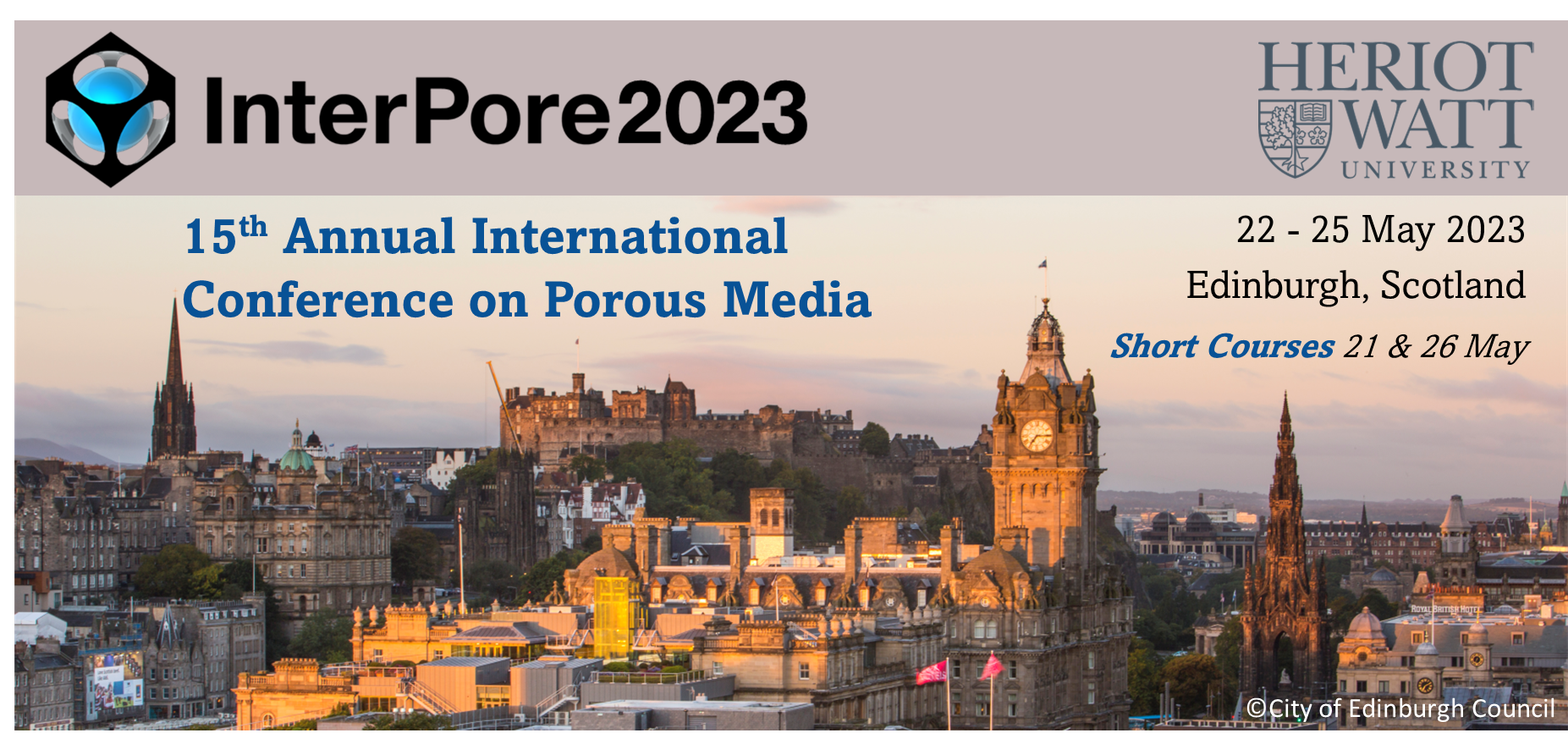Speaker
Description
Gas bubbles can form and grow in otherwise liquid-saturated granular media due to various physical processes, such as corrosion or the microbial decomposition of organic matter. These gas bubbles are typically non-wetting to the solid grains; as such, it is energetically costly for the gas to invade the narrow pore throats between grains. If the solid skeleton is sufficiently soft and/or the confining stress is sufficiently low, the gas can instead displace the solid grains to open macroscopic cavities. These gas cavities form in a variety of soft porous media, including seabed sediments, industrial waste ponds, and peatlands. An increase in the confining stress can trigger the collapse of these cavities, forcing the gas into the pore space. A quantitative understanding of cavity collapse is thus important for characterising the macroscopic mechanics of this three-phase system and for predicting the rate of gas venting to the surrounding environment. Here, we investigate this problem experimentally using a packing of hydrogel beads as a model soft porous medium. We complement our experimental observations with a novel phase-field model that captures the competing effects of elasticity and gas-liquid-solid interactions (capillarity). We study the deformation-driven collapse of gas cavities in a 1D setting, identifying the confining stress at which cavities collapse and investigating the reversibility of cavity formation and collapse under fluctuating confining stress.
| Participation | In-Person |
|---|---|
| Country | UK |
| MDPI Energies Student Poster Award | Yes, I would like to submit this presentation into the student poster award. |
| Acceptance of the Terms & Conditions | Click here to agree |







